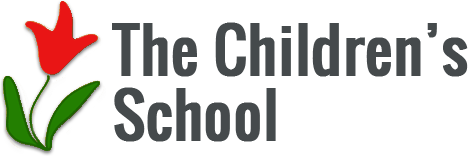By Cindy Finch
Have you ever noticed that sometimes the things we do, experience, and hear only seem meaningful in hindsight? It may be that something that has happened over the past year will occur to you in a month, in a year, or in a decade as something significant. That is how I have experienced parenting—partially in the here and now, and partially looking ahead to the future and back at the past.
It occurred to me recently that I have three significant pieces of parenting advice rolling around in my head. These tidbits, which came to me in casual conversation, changed how I made decisions about parenting and interacting with my children. I am thankful to have been challenged by these people in my life at a time when I was open and ready to learn from their experiences.
So, here are three of the most meaningful pieces of parenting advice that I received when my children were younger.
First: “I do want my children to have everything they want.” My neighbor, Martha, told me this over the fence one afternoon when my oldest child was a toddler. I was likely trying to figure out how much to buy for my child or how permissive to be as a parent. I don’t exactly recall what we were discussing, but her comment surprised me. I, over time, began to see my responsibility as a parent differently: it was my job as a parent to consider my children’s needs even if they weren’t expressing them well or if their superficial demands reflected some deeper need. The wisdom of her statement shaped how I interpreted my child’s need and wants and how I responded to honest expressions of frustration or immature ways of communicating.
Second: “I want to give my children time to get bored.” At the beginning of parenting I thought it was my job to be “on” all the time so that my child had a rich life. It was exhausting to me. When my friend, Judy, said this about her kids, it caught my attention. What I came to appreciate about her statement was this: when children are not “entertained” or kept busy all the time their energy shifts. They create sandbox dramatic play situations that an adult could never think of leading or find corners of the yard to turn into a hideout. I developed a much better sense of balance as a parent when I stopped thinking that being a good parent meant being my child’s full time play mate. Our interactions and shared activities became more important and meaningful when I trusted my child (and later, children) to create some of their own fun.
Third: “I will put up with some things I don’t approve of because having a relationship with my child is worth it.” I heard this from my sister-in-law, Cynthia, when my children were still quite young and her child was college-age. However, I mention it because it absolutely saved me from making big mistakes when my children explored ideas or activities I had already dismissed as unimportant, irrelevant, or not worthy of time or energy. It becomes more tempting when the issues are bigger and the children are older to draw a line in the sand and say “if you do that you won’t have my support.” In my experience, however, and with my sister-in-law’s words in my ears, I have found it critical to continue to listen and talk with children even more when the stakes are higher. During the explorations of the teenage and young adult years, the most dangerous option is for our kids to be trying to figure out who they are and where they stand in relation to the world without a relationship that is loving, enduring, and respectful—like we can provide as parents.
Parenting is personal, and that fact is something that I like best about it. You and your child or children are the only ones just like you, individually and in the relationship you create together. There are guidelines for parenting, but you are the one who makes the decisions for your family, and those decisions are based on things you know, things you feel, and things you learn. You get to relive and resolve issues from your childhood. You get to do things differently—or the same—as the way you were parented. The things that shape who you are as a parent are personal too, and it is only in reflection that I have realized these influences on who I am as a parent.
I wish for you a wonderful new year—and time to consider who you are as a parent and reflect on the decisions you have and will make in this important life-role.
